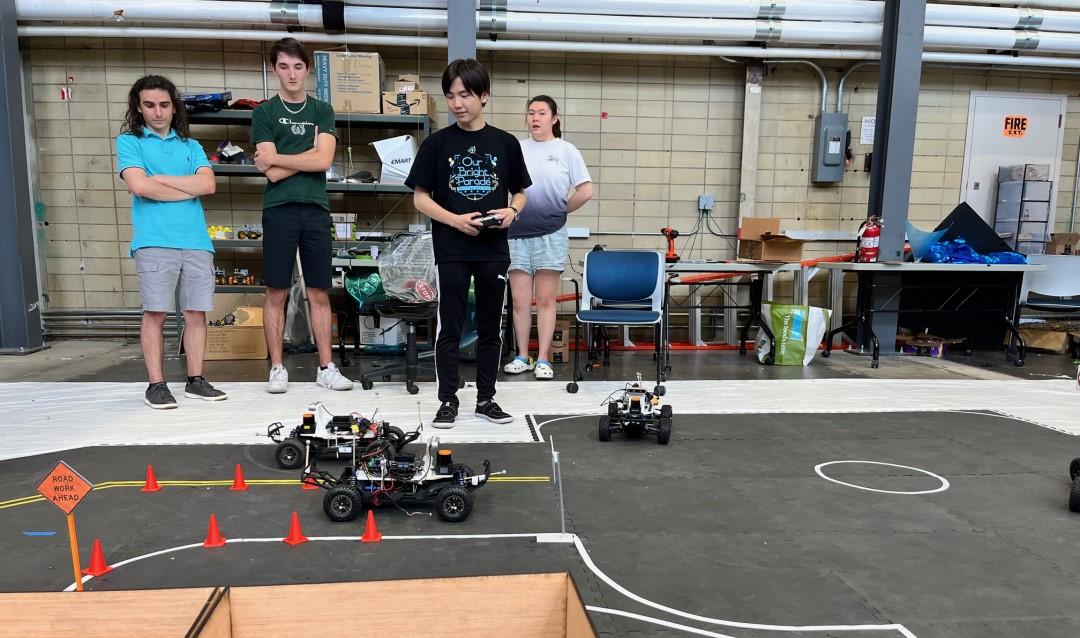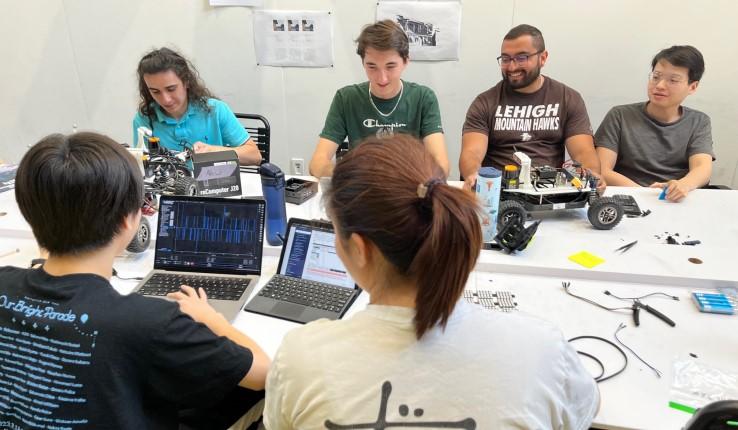Exploring the bustling dynamics of urban landscapes, the “Self-Driving Cars in Urban Environments with Traffic” project team, part of the Mountaintop Summer Experience, is making substantial contributions to the self-driving car community. The team is working to enhance the decision-making capabilities of autonomous vehicles, navigating through the complexities of urban landscapes.
The team's approach focuses on ensuring safety and adherence to road rules for autonomous vehicles. It investigates how these vehicles behave in challenging scenarios where it's not always possible to strictly enforce all road rules. Metrics such as response risk, certainty and safety are fundamental in the analytical procedures, supporting the team’s commitment to advancing research in this field.
The team achieves this by crafting innovative algorithms and embracing the transformative capabilities of machine learning coupled with formal synthesis methods that ensure safety and adherence to rules.
Central to the team’s research is an intricately designed testbed, located in the Autonomous and Intelligent Robotics (AIR) Lab. The testbed mirrors the unpredictable nature of urban environments. Featuring roundabouts, single-lane roads, and S-curves, along with simulated urban elements such as pedestrians and traffic signs, it provides a thorough testing ground for advancements.
Led by Cristian-Ioan Vasile, an assistant professor of mechanical engineering and mechanics, the project is poised to leverage the transformative powers of artificial intelligence and machine learning. The team is committed to developing innovative algorithms that will empower autonomous vehicles with unparalleled navigational skills and responsive capabilities.






